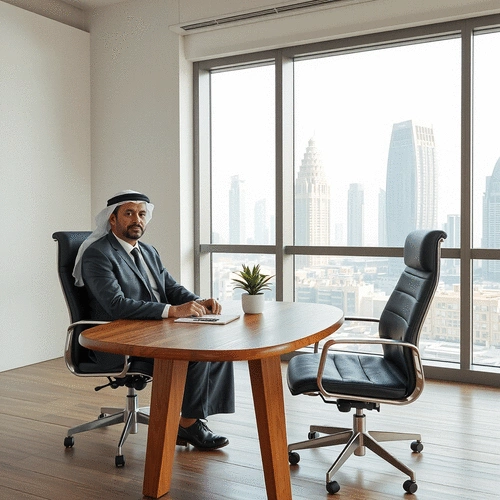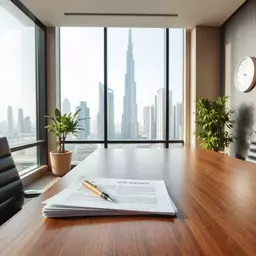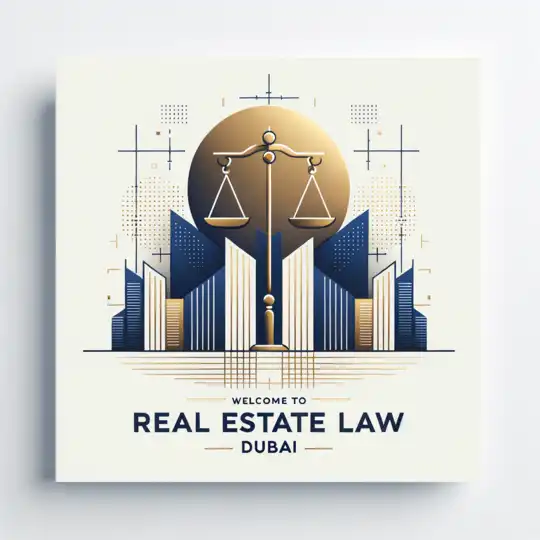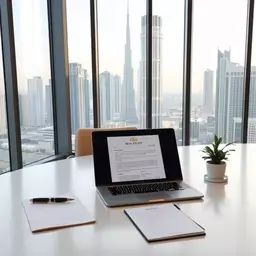In the fast-paced rental market of Dubai, knowing your rights as a tenant or landlord is crucial for a harmonious relationship. With numerous legal frameworks in place, understanding the common causes of disputes can help you prevent conflicts before they escalate.
What You Will Learn
- Common Causes of Disputes: Recognize the primary triggers of tenant-landlord conflicts, including unexpected rent increases, eviction issues, and property damage disputes.
- Importance of Documentation: Keeping thorough records of communications and agreements can significantly strengthen your position in a dispute.
- Understanding Legal Frameworks: Familiarize yourself with Decree No. 26 of 2013 and other housing regulations that govern tenant-landlord relationships in Dubai.
- Utilizing the Rental Dispute Centre: Learn how the Rental Dispute Centre can help you mediate issues and provide resources for resolving disputes effectively.
- Proactive Engagement: Early and civil communication with landlords can prevent misunderstandings and foster better relationships.
- Know Your Rights: Awareness of your rights as a tenant can empower you to take appropriate actions in case of disputes.
Common Causes of Tenant-Landlord Disputes in Dubai
Understanding the major triggers of disputes can help both tenants and landlords navigate their responsibilities more effectively. Below is a breakdown of the common causes and their implications.
Rent Increases
Unexpected hikes in rental prices can cause financial strain for tenants, often leading to disputes if not communicated properly.
Evictions
Landlords may attempt to evict tenants for various reasons, which can sometimes be contested legally, leading to disputes.
Property Damage
Disagreements over who is responsible for repairs can escalate into larger disputes, especially if documentation is lacking.
Service Cut-offs
Cut-offs of essential services such as water or electricity can severely impact tenants, leading to disputes over service levels.
Understanding Tenant-Landlord Disputes in Dubai: Common Causes and Legal Framework
When navigating the dynamic rental landscape of Dubai, it’s essential to understand the common causes of tenant-landlord disputes. These conflicts can arise from various issues, ranging from rent increases to evictions or even property damage. Recognizing these triggers can help both parties navigate their rights and responsibilities effectively.
As someone who specializes in real estate law, I can tell you that many disputes stem from a lack of clear communication between landlords and tenants. For instance, misunderstandings regarding lease terms or unexpected maintenance costs often lead to friction. Addressing these issues early on can save you time, money, and stress! For more comprehensive legal assistance, consider exploring Dubai real estate lawyer services.
Identifying the Causes of Rental Disputes
Understanding the root causes of rental disputes is crucial for both tenants and landlords. Here are some common reasons:
- Rent Increases: Unexpected hikes in rental prices can cause financial strain.
- Evictions: Landlords may attempt to evict tenants for various reasons, which can sometimes be contested.
- Property Damage: Disagreements over who is responsible for repairs can escalate into larger disputes.
Common Reasons for Disputes: Rent Increases, Evictions, and Property Damage
Rent increases can often catch tenants off guard. In Dubai, landlords must follow specific regulations when raising rent, and not adhering to these can create legal issues. Similarly, evictions must comply with the law, which requires proper notice and justification.
When it comes to property damage, both parties may have different interpretations of what constitutes normal wear and tear versus damage that needs to be repaired. Documenting the condition of a property before moving in can help mitigate these disputes later!
Understanding Service Cut-offs and Their Impact on Tenants
Another area that can lead to conflicts is the cut-off of essential services, such as water or electricity. These disruptions can heavily impact tenants' quality of life. It’s important for tenants to know their rights regarding service interruptions and how they can seek recourse.
Landlords are typically responsible for maintaining service levels, and failing to do so can lead to disputes. Always check your lease agreement for clauses relating to service guarantees, and don’t hesitate to reach out for legal advice if you feel your rights are being violated. For more information on your protections, you can read about tenant rights in Dubai rentals.
Navigating Dubai’s Real Estate Laws
Dubai's real estate laws provide a framework for resolving disputes. One of the key regulations affecting tenant-landlord relationships is Decree No. 26 of 2013. This decree governs rental agreements, ensuring both parties understand their rights and responsibilities.
Understanding these laws is essential for making informed decisions. If you're ever in doubt, consulting with legal experts like those at Real Estate Law Dubai can provide significant clarity.
The Role of Decree No. 26 of 2013 in Tenant-Landlord Relationships
Decree No. 26 of 2013 outlines the necessary legal standards for rental agreements. This ensures that tenants have protections against unfair practices such as sudden rent increases or unjust evictions. The decree helps create a balanced relationship between landlords and tenants, making it a vital point of reference in any rental dispute.
Both landlords and tenants can benefit from familiarizing themselves with this decree to avoid potential legal challenges. Awareness of the law makes it easier to navigate disputes amicably and effectively!
Key Features of the Rental Dispute Centre and Its Functions
The Rental Dispute Centre (RDC) in Dubai serves as a crucial resource for resolving disputes between tenants and landlords. Its primary functions include receiving complaints, facilitating mediation, and adjudicating cases as needed.
Using the RDC can streamline the dispute resolution process. It offers a structured approach to handling conflicts, ensuring that both parties have a fair chance to present their cases. If you find yourself involved in a dispute, the RDC is a reliable platform to consider! For deeper insights into resolving such conflicts, explore resolving property disputes in Dubai.
Overview of Relevant Housing Regulations and Tenancy Law UAE
In addition to Decree No. 26, several other regulations govern tenant-landlord relationships in Dubai. These laws outline essential rights and obligations, such as:
- Maximum allowable rent increases
- Guidelines for eviction notices
- Maintenance responsibilities for both parties
By understanding these regulations, tenants can better protect themselves and ensure that landlords fulfill their obligations. Knowledge is power, especially when it comes to real estate!
Pro Tip
To minimize the risk of disputes, it’s beneficial for both tenants and landlords to draft a detailed rental agreement that clearly outlines expectations. Include specifics about maintenance responsibilities, rent review periods, and procedures for terminating the lease. Regular communication and annual reviews of the lease terms can also help in maintaining a harmonious relationship.
Frequently Asked Questions (FAQs)
Here are some frequently asked questions about tenant-landlord disputes in Dubai:
- 1. What are the most common causes of tenant-landlord disputes in Dubai?
- The most common causes include unexpected rent increases, disputes over evictions, disagreements regarding responsibility for property damage, and issues related to service cut-offs (e.g., water, electricity).
- 2. How important is documentation in a rental dispute?
- Documentation is crucial. Keeping thorough records of all communications, agreements, rent payments, and property conditions can significantly strengthen your position and evidence in a dispute.
- 3. What is Decree No. 26 of 2013, and why is it important?
- Decree No. 26 of 2013 is a key legal framework in Dubai that governs rental agreements and tenant-landlord relationships. It outlines legal standards, protects tenants from unfair practices like sudden rent increases or unjust evictions, and helps create a balanced relationship.
- 4. What is the Rental Dispute Centre (RDC) and how can it help?
- The Rental Dispute Centre (RDC) is a crucial resource in Dubai for resolving disputes between tenants and landlords. It receives complaints, facilitates mediation, and adjudicates cases, providing a structured approach to conflict resolution.
- 5. What should tenants do if essential services are cut off by the landlord?
- Tenants should first refer to their lease agreement for clauses related to service guarantees. If the cut-off is unjustified, they should document the issue and consider seeking legal advice or contacting the Rental Dispute Centre, as landlords are typically responsible for maintaining service levels.
- 6. How can tenants and landlords prevent disputes proactively?
- Proactive measures include clear communication, drafting detailed rental agreements outlining expectations (maintenance, rent reviews, termination procedures), and regularly reviewing lease terms. Documenting property conditions before moving in can also prevent future disagreements.
Key Takeaways on Tenant-Landlord Disputes in Dubai
When it comes to resolving tenant-landlord disputes in Dubai, having a clear understanding of the process can make all the difference. From the initial steps of documenting your issue to leveraging resources like the Rental Dispute Centre, each action contributes to a smoother resolution. As someone who has navigated these waters, I can assure you that being proactive and informed is crucial!
Here’s a recap of the dispute resolution process and some important contacts to keep in mind:
- Document every interaction and agreement with your landlord.
- Gather any supporting evidence before filing a complaint.
- Reach out to the Rental Dispute Centre for guidance.
- Utilize available online resources to track your case.
Summary of Steps and Resources Available
As we wrap up this discussion, let’s highlight the importance of documentation and timely action in resolving disputes. Being organized not only strengthens your case but also helps you communicate effectively with the relevant parties. Have you kept records of your rental payments, maintenance requests, and any correspondence? This can be invaluable during the dispute process!
It’s essential to remember that the Rental Dispute Centre offers numerous resources. You can find essential contacts, FAQs, and even sample forms to guide you through filing a complaint. I encourage you to utilize these resources to maximize your chances of a favorable outcome.
Encouraging Proactive Engagement with the Rental Dispute Centre
Engaging proactively with the Rental Dispute Centre can significantly enhance your chances of resolving issues promptly. By reaching out early and often, you place yourself in a better position to protect your rights as a tenant. Don’t hesitate to ask questions! Whether you’re uncertain about a legal process or need clarification on your rights, there’s no such thing as a silly question.
In my experience, it’s vital to stay updated and informed about your rights and protections as a tenant. Remember, the goal is to resolve disputes amicably whenever possible. Here are some tips to keep in mind:
- Stay calm and civil in all your communications.
- Document conversations and agreements with your landlord.
- Seek legal advice if necessary, especially for complex disputes.
Final Thoughts on Tenant Protections and Rights
As we conclude, I want to emphasize that being aware of your rights can significantly empower you in any dispute. The laws surrounding tenancy in Dubai are designed to protect both tenants and landlords, ensuring a fair playing field. Have you explored what those protections entail? Knowledge is your best ally! You can find more details on tenant rights and landlord duties.
Lastly, I invite you to leverage the resources available to you, including the Rental Dispute Centre and the Dubai Land Department. These entities are here to help you navigate disputes effectively and efficiently. If you ever find yourself in a tough spot, remember that seeking assistance is always a wise choice.
Recap of Key Points
Here is a quick recap of the important points discussed in the article:
- Common Causes of Disputes: Key issues include rent increases, evictions, and property damage.
- Effective Communication: Clear communication between landlords and tenants can prevent misunderstandings.
- Document Everything: Keep detailed records of interactions, agreements, and property conditions.
- Know Your Rights: Familiarize yourself with Decree No. 26 of 2013 and other relevant housing regulations.
- Utilize the Rental Dispute Centre: This resource can assist in mediation and adjudication of disputes.
- Proactive Engagement: Engage with the Rental Dispute Centre early to protect your rights as a tenant.
- Seek Legal Advice: For complex disputes, consulting with legal experts is advisable.









